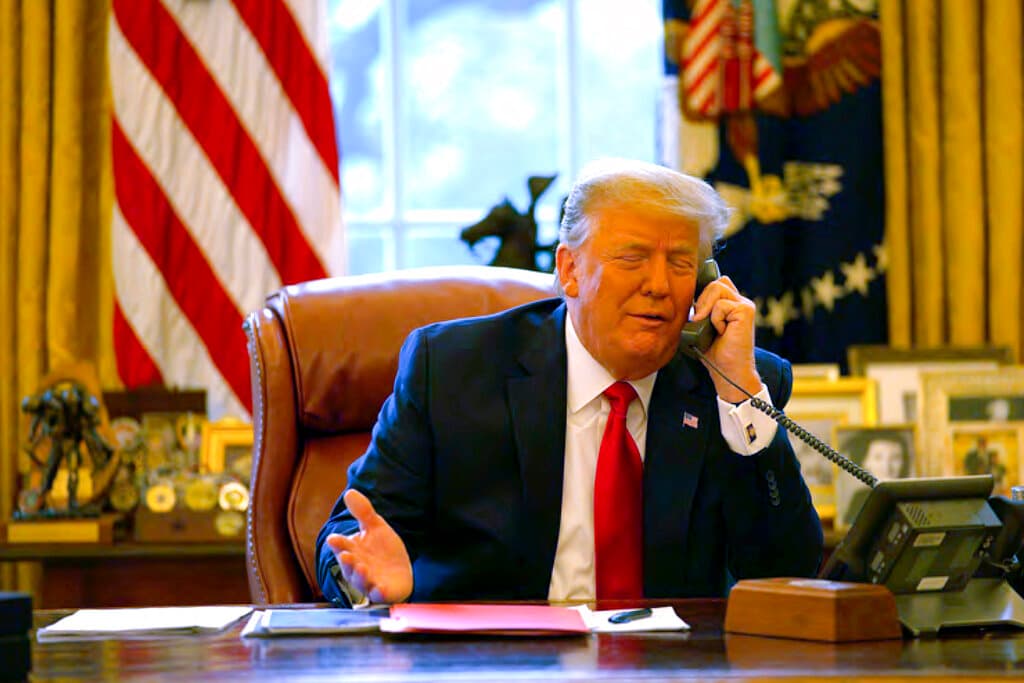Georgia Mocks Grand Jury Secrecy
The forewoman of the panel empowered to recommend the criminal indictment of President Trump has embarked on something of a press tour.

Outrageous is the word for what’s going on with the special grand jury that looked at Trump in Georgia. The forewoman of the panel empowered to recommend the criminal indictment of the former president and his campaign brass in 2020 has embarked on something of a press tour — sit downs with the Associated Press and New York Times, with more winks and nods than Charlie Chaplin. It makes a mockery of the principle of grand jury secrecy.
Ms. Kohrs tells the Times that “it is not a short list” of indictments that the grand jury recommended. That itself is newsworthy, given that such information is not unsealed. When asked if those included recommendations for charges against the former president, she mused that “you’re not going to be shocked. It’s not rocket science.” Talk about a plot spoiler; Ms. Kohrs has already given away the ending.
Bear in mind that it’s not Ms. Kohrs’s grand jury that is going to do any indicting in this case. Hers is a special investigatory grand jury. Its recommendations may — or may not — go to a regular grand jury empowered to hand up an indictment or indictments. What are those grand jurors going to think when the papers are reporting that the forewoman who just looked at the case says an indictment is “not rocket science”?
Bear in mind, too, that grand juries exist in part to protect the accused against a rush to judgment. Which is — we speculate — why the judge overseeing the case, Robert McBurney, has stressed the need for discretion. He approved the release of a version of the special grand jury’s findings, but any intelligence on indictments was scrubbed. While he found parts of the report “ripe for publication,” nowhere is the name “Trump” found in those fragments.
This is intended to protect due process rights of both the accused and the ability of the prosecutor to protect witnesses. It’s why every Georgia grand juror takes an oath to “keep the deliberations of the Grand Jury secret.” It’s why Georgia’s “Grand Jury Handbook” says that “secrecy not only aids in the investigation process, but is of particular importance to an accused.” Especially when, as Ms. Kohrs put it, the case is a “big freaking deal.”
No one is oblivious to the possibility that indictments are likely to be handed up in Fulton County. The lawyer prosecuting the case, Fani Willis, is herself on record that charging decisions are “imminent.” It is quite another thing, though, for a juror who was privy to witnesses and evidence to spill the beans. That is doubly the case when the special grand jury that Ms. Kohrs led is empowered only to recommend indictments, not hand them up.
Let us mark what we’ve said a number of times before. The New York Sun carries no brief for President Trump or any member of his camarilla or any other individual in this case. We don’t want Mr. Trump to be placed above the law, but neither do we want him to be put below it. Our concern here is constitutional due process. It is one of the most important guarantees in the Constitution — and in our civilization.
This is true among the states and the federal government itself. The Federal Rules of Criminal Procedure warn jurors that, among others, government attorneys, and the grand jurors themselves “must not disclose a matter occurring before the grand jury.” This prohibition is a guardrail around no less than the 14th Amendment. It’s just not — as Ms. Kohrs put it — rocket science.

